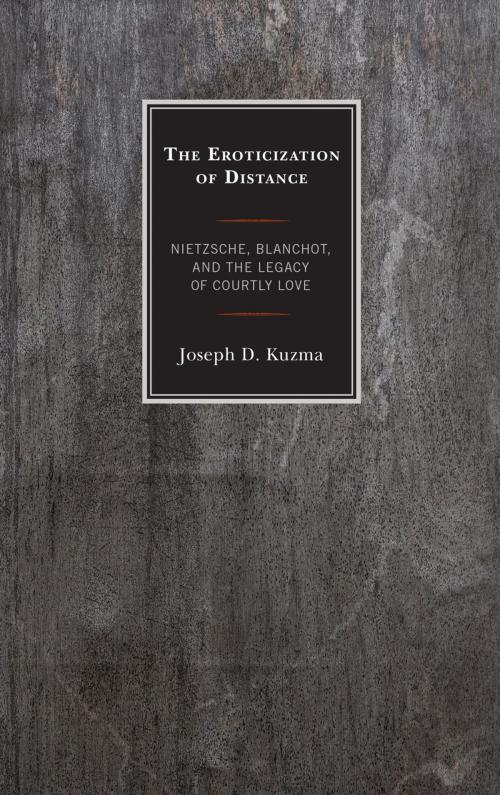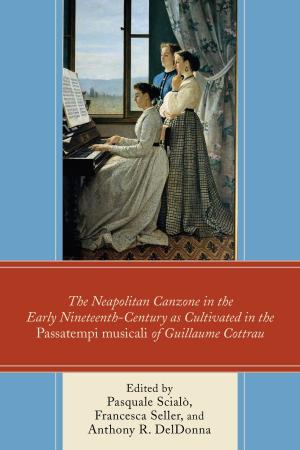The Eroticization of Distance
Nietzsche, Blanchot, and the Legacy of Courtly Love
Nonfiction, Religion & Spirituality, Philosophy| Author: | Joseph D. Kuzma | ISBN: | 9781498524391 |
| Publisher: | Lexington Books | Publication: | July 26, 2016 |
| Imprint: | Lexington Books | Language: | English |
| Author: | Joseph D. Kuzma |
| ISBN: | 9781498524391 |
| Publisher: | Lexington Books |
| Publication: | July 26, 2016 |
| Imprint: | Lexington Books |
| Language: | English |
The Eroticization of Distance: Nietzsche, Blanchot and the Legacy of Courtly Love, Joseph D. Kuzma explores the significance of courtly erotic themes in Friedrich Nietzsche’s mature philosophy and in Maurice Blanchot’s writings of the 1940s and early 1950s. Rather than offering an account of erotic relationality that prioritizes reconciliation, fulfillment, or release, Nietzsche attempts to formulate a nonteleological eroticism that aims at nothing but the perpetual intensification of desire. Kuzma suggests that it is Blanchot who carries Nietzsche’s courtly erotic tendencies to their most provocative point, by highlighting potentials for intimate relationality that might be established through a shared experience of dispossession and loss. This first monograph to engage specifically with the theme of eroticism in Blanchot’s writings will be of interest not only to students and scholars of Nietzsche, Blanchot, or French philosophy, but also anyone interested in the philosophy of sexuality, the history of love, theories of the emotions, or nineteenth and twentieth-century European thought more generally.
The Eroticization of Distance: Nietzsche, Blanchot and the Legacy of Courtly Love, Joseph D. Kuzma explores the significance of courtly erotic themes in Friedrich Nietzsche’s mature philosophy and in Maurice Blanchot’s writings of the 1940s and early 1950s. Rather than offering an account of erotic relationality that prioritizes reconciliation, fulfillment, or release, Nietzsche attempts to formulate a nonteleological eroticism that aims at nothing but the perpetual intensification of desire. Kuzma suggests that it is Blanchot who carries Nietzsche’s courtly erotic tendencies to their most provocative point, by highlighting potentials for intimate relationality that might be established through a shared experience of dispossession and loss. This first monograph to engage specifically with the theme of eroticism in Blanchot’s writings will be of interest not only to students and scholars of Nietzsche, Blanchot, or French philosophy, but also anyone interested in the philosophy of sexuality, the history of love, theories of the emotions, or nineteenth and twentieth-century European thought more generally.















